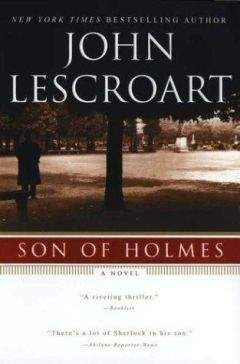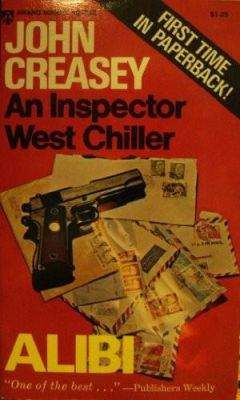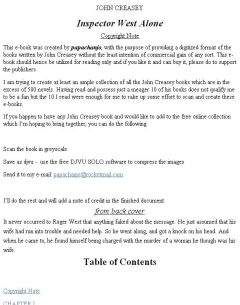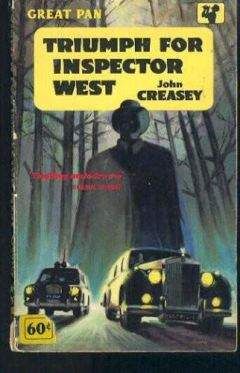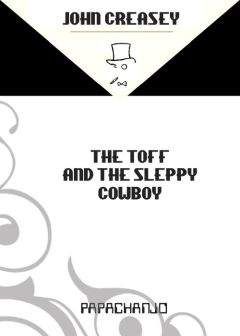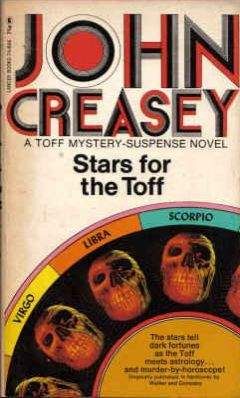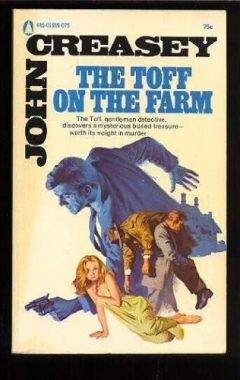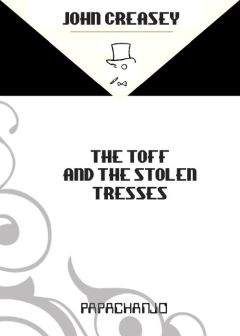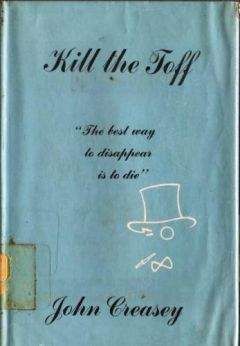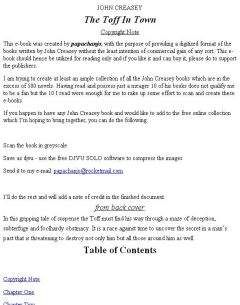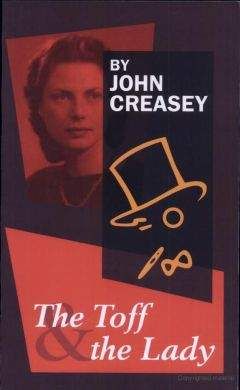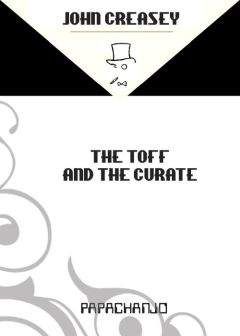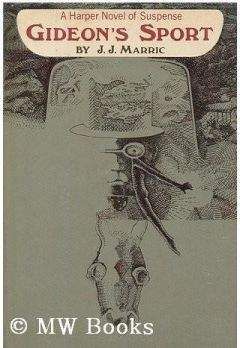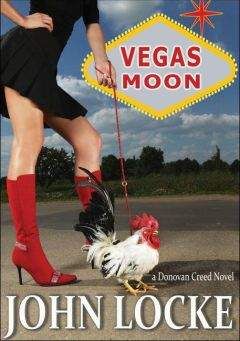John Creasey - Meet The Baron
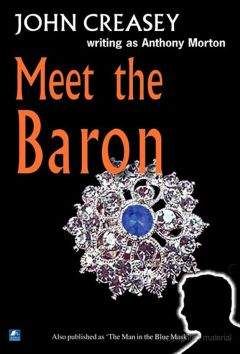
Скачивание начинается... Если скачивание не началось автоматически, пожалуйста нажмите на эту ссылку.
Жалоба
Напишите нам, и мы в срочном порядке примем меры.
Описание книги "Meet The Baron"
Описание и краткое содержание "Meet The Baron" читать бесплатно онлайн.
He was finding the service-flat in Brook Street very useful. At one time he had viewed it as an unnecessary expense, but he was glad now that he had never tried to economise. The place was central, its service enabled him to dispense with a servant, and he could act there with less risk of interference than if he were in an hotel all the time.
He had actually given up his rooms at the Elan, but the proceeds from the Overndon pearls would enable him to take them again. It was necessary still to show a good front. He had to look rich. Whatever economies he practised must not be at the cost of appearances, unless the situation was desperate.
But he was living at the rate of five thousand a year, and he would have either to cut his expenses or increase his income considerably; so much was certain. He had done well with the smaller stuff, but the robberies that he was officially helping to investigate would have to become less frequent. He needed something bigger. But there was always the difficulty of selling.
Grayson seemed reliable enough, but Mannering doubted whether the fence would be prepared to buy anything at a higher figure than fifteen hundred pounds, while he had no desire to visit the warehouse too often. The old problem of finding an outlet for his jewels was increasingly difficult. He still had the Rosas, worth ten thousand pounds if he could find the right market.
Mannering smiled as he remembered the little duel with Septimus Lee, alias Levy Schmidt, and not for the first time wondered whether the clever Jew had forgotten him, or whether he was still suspect. He was sure that Lee was keeping a very careful watch for the Rosa pearls. If they were sold through any normal channel — normal, that was, from the point of view of the fence — Lee would learn of it.
Meanwhile Mannering was sitting pretty with the Rosas in his possession, but with a bank-balance which, until this twelve hundred pounds had come along, had been perilously low; but now he had enough to satisfy him for a while.
He separated the notes into three packets of four hundred each. Then he took his paying-in books and made the necessary entries. This finished, he glanced at his watch, to find that it was twenty minutes to three. He would have to taxi from one bank to the other if he was to get to them before they closed, and he had no desire to keep the cash in the flat all night.
Then he had a shock: without the slightest warning the door of the flat opened.
Mannering saw it, and went pale. He moved his hands towards the bundles of notes, but he knew that it was useless to try to conceal them; he would be seen. For a split second that seemed like an eternity he waited.
Then he saw who it was, and he laughed. It was the only thing to do.
Lorna Fauntley stood in the doorway, smiling at him, but looking puzzled.
“Greeted with loud hurrahs — or am I ?” she mocked, as she advanced towards him.
Mannering stood up quickly, and took her hand; his eyes were dancing.
“Is that the way you enter a bachelor’s apartment?” he retorted.
“I tried the door, it opened, so I came in,” said Lorna, dropping into a chair. “If you want to keep your guilty secrets from prying eyes you should lock your rooms, John.”
“It’s not worth the risk of missing you,” Mannering riposted.
He had not seen Lorna so frequently of late. The advent of the Wagnalls and Gerry Long and the reopening of his friendship with Lady Mary and Colonel George Belton had occupied him, and Lorna had spent a great deal of time painting. Too much time, he told himself as he looked at her.
He regarded her for several minutes, thoughtfully and without speaking. She returned his gaze, but the smile on her lips was not wholly sincere. She looked tired. Her eyes lacked the lustre they had possessed; that turbulent spirit that had at first intrigued and later enamoured him was subdued. He hardly knew why, but he told himself that she was worried.
“I’m looking a wreck,” said Lorna suddenly.
The disconcerting habit she had of saying the obvious and saying it bluntly was still in her, and Mannering laughed.
“You look as though art has been too hard a master,” he said. “You’re working too much, my dear. You mustn’t.”
Lorna laughed and shook her head; there was a hardness in the sound which made Mannering wary.
“I must,” she said; “but don’t worry about me, John.”
Mannering’s lips curved as he offered her a cigarette and suggested tea. She nodded, and she watched him make it, smiling a little, but without the mischievousness that had characterised her in the early days of their friendship.
“Why must you?” he asked, as he handed her a cup and passed sugar and cream.
The sudden return to the topic seemed to take her off her balance. Her face was very sober as she stirred her tea.
“Why do most people work?” she demanded, almost defiantly.
And then, to Mannering’s complete astonishment, tears welled up in her eyes, and she covered her face in her hands.
“Oh, my dear,” said Mannering. He stepped to her side and gripped her shoulders gently. She said nothing, but after a moment she smiled. There was something pitiful, something tragic, in that smile, and the need for knowing why seemed to Mannering the most urgent thing in the world.
“If there’s anything I can do,” said Mannering very quietly, “you’ve only to say it, Lorna. No need for questions and answers. Just say the word.”
She pressed his fingers, and smiled wanly.
They had finished tea, but for some minutes neither of them had spoken. Mannering was completely at a loss. If there was one thing he had never anticipated this was it. Lorna was essentially strong-willed. He had never seen her show emotion. She had always covered it with that sometimes cynical, sometimes mocking, sometimes uncertain veneer. And now this, taking him completely by surprise.
“There isn’t,” she said. “I’ve made a fool of myself, John, and that’s all there is to it.”
“And so we have to forget it?” suggested Mannering.
Lorna nodded. Mannering smiled, but there was a depth of understanding in his eyes.
“My dear,” he said, “you’re talking nonsense. There was a time when we started to talk of . . .”
“Marriage?” said Lorna as he hesitated, and the word was a whisper.
“Marriage,” he said soberly. “I’ve never mentioned it, because it was an understanding that we shouldn’t. But if we were married you would want me to help. Why don’t you now?”
She forced a smile to her lips.
“There’s no reason why I should,” she said.
“There’s every reason,” said Mannering, and his voice was very low.
Lorna shrugged her shoulders. She looked very forlorn, very tired — and very lovely.
“It’s a very old business,” she said. “I mean, it’s ageless. I’m in need of money. That’s all.”
She spoke listlessly, as though she was speaking without interest. When she stopped she continued to look past Mannering towards the wall.
He was glad that she did.
The complete astonishment which filled him as he heard the word “money” revealed itself on his face. It was gone in a flash, but it had been there, and he felt winded. Lorna, daughter of Lord Fauntley, who had boasted that he was among the ten richest men in England, wanted money.
There was something absurd about it, but Mannering conquered a temptation to laugh. He swallowed hard, and then said quietly: “How much?”
The blankness disappeared from Lorna’s eyes as he spoke. She laughed, and for the first time since she entered the flat she sounded normal, natural.
“That’s just the one question I’d expect you to ask,” she said. And the expression in her eyes made him flush. His voice was level enough, however, and held a hint of laughter.
“It’s the only pertinent one,” he said.
Lorna looked at him very straightly.
“I despise myself,” she said, very clearly and very slowly, “because it’s the one thing I shouldn’t say. But I do need money, John. A thousand pounds, if I can get it. Quickly.”
She stopped, and the silence could almost be felt, broken only by her heavy breathing.
Mannering’s mind was moving rapidly. The single fact registered that she needed the money — one thousand pounds. It wasn’t as large a sum as it sounded; there had been times when he would have laughed at it.
He was tempted to ask questions, but he knew that that was the one thing which he must not do. But the thing tormented him. Why did she need it? Why couldn’t she get it from her father if she did want it!
The answer to the second question was obvious, he told himself. Fauntley would ask why. She couldn’t tell him; so the reason for her need was . . .
Blackmail came to his mind. It came and went quickly. He preferred not to think about it, but he could see that the worry and anxiety in her face spoke of something like that. Blackmail!
He forced his thoughts down; the silence was growing too strained.
“That’s all right,” he said. “When exactly do you need it?”
His words came easily, even if the thoughts which had flashed through his mind after her words had seemed timeless. He was looking at her, and Lorna smiled.
“You’re very much true to type, John,” she said, and then stood up quickly and reached for her gloves. “But we’ve both been talking nonsense. I don’t need die money, and you’re an idiot for thinking that I do. Shall we dine to-night ?”
Mannering smiled, and his fingers closed round her wrists.
“Brave, but not so convincing,” he said very gently. “Try to be honest, my dear, with yourself — and me. It may help us both. Meanwhile . . .”
Her lips trembled, and her eyes were suspiciously bright.
“I shouldn’t have come,” she said.
“You know you should, for it made you talk. We can’t do much for each other, Lorna. You know why. I don’t. But when I can help I’m waiting and willing.”
The tears came into her eyes again. Mannering felt the pressure of her slim body against his. His arms tightened round her shoulders. He looked down on that dark, luxurious hair, and. he felt her sobbing. With his right hand he smoothed her head, and he kept very still.
The smile on his lips was beyond understanding.
CHAPTER NINETEEN
THE QUEEN’S WALK BURGLARY
MANNERING LIT A CIGARETTE, LEANED BACK IN HIS CHAIR, and stared at the ceiling. He was still smiling, but there was a grimness in his smile. The bundles of notes on the desk had disappeared. One small wad was left — two hundred pounds where there had been twelve hundred. It was a difficult situation to smile at, but he had to try.
Lorna had gone. She had gone very quickly, as if afraid that to linger would have been to have lost. Her attitude had puzzled and worried Mannering. She had been unsettled, uncertain, really worried, and as definitely grateful. He had not asked her a single question, and she had volunteered no information. He believed that he was glad, but inwardly he felt a very natural curiosity. Why had she needed the money?
He pushed the question to the back of his mind and moved from his chair. The pass-books which Lee’s emissary had once been so anxious to take revealed a sum of nine hundred pounds, which, with the two hundred on the desk, made a total of eleven hundred. It was enough for the moment, but it meant that he was living hand-to-mouth. He was back where he had been a few days ago.
For the hundredth time he wondered how he could dispose of the Rosa pearls, and for the hundredth time he determined to let them wait for a while; they were too warm yet. The next problem, then, was to find another likely victim, and a haul he could turn into cash quickly.
Mannering grimaced. By now he almost disliked the cold-bloodedness of his life of crime. It was as distasteful in some ways as it was exciting in others. But he would go on now until he had made enough to retire on; so much was certain. He tried to fix a figure, but he realised the uselessness of it. His expenses in a year’s time might be doubled or trebled — unless, of course, he slipped up on a job and spent a few years in gaol. The prospect, instead of making him hesitate, cheered him. There was a zest in danger that made up for everything else.
He ran through the list of his social engagements for the next two weeks. The only events of note would be the Faundey dinner — Lord Fauntley held an annual affair that outshone all rivals in the matter of celebrities and luxuriousness — and the Ramon Ball. The Fauntley affair was out of it; Mannering was still determined not to make any raid on the peer’s strong-room, for the guard would be stronger than ever now.
That left the Ramon Ball.
Carlos Ramon was a South American cattle-owner who had taken by storm that part of London which was primarily money-conscious. The wealth of the Ramons was almost legendary. Carlos himself owned the largest fleet of cattle-boats in South America, and it was said that his herds of cattle rivalled the possessions of the biggest Anglo-American companies. Mannering knew the man slightly, and neither liked nor disliked him.
Carlos Ramon — Senor Carlos, Mannering recalled with a smile — had an imposing presence, a brick-red face, handsome after a fashion, with the inevitable moustache, black, greased, and pointed at the ends, and an extremely pretty wife. His wife was Spanish, without the aloofness usually credited to her race; she was, Mannering knew, perilously near a coquette. He knew, too, that Carlotta’s beauty and Carlos’s money had captured London, and the Ramon Ball, to take place four days after the visit of Lorna Faundey to
Mannering’s flat, was a farewell party; the South Americans were returning to their native land, and London was giving them a send-off; or they were bidding London a warm good-bye.
In any case the assembly would be a positive rodeo of the rich, while most of the women would outdo — or try to outdo — one another with their jewels. The prospect was inviting; there would be hundreds of thousands of pounds” worth there.
Mannering muttered to himself very suddenly as an idea came into his mind.
“You fool!” he said. “Oh, you fool!” And he smiled.
“After going to all that trouble, and suffering as you’re doing,” said Lorna Fauntley sympathetically, “there are two other costumes almost exactly alike. Poor John!”
“At least I’ve the imagination not to come as a harlequin,” said Mannering, not without point.
Lorna laughed lightly.
She had chosen, a little daringly, to dress as a Spanish dancer, and the daring, in the opinion of a few of the plainer revellers, was due to the fact that the hostess was the obvious choice for that costume. Happily Carlotta Ramon had preferred to be a Fragonard shepherdess, and Lorna was conspicuous — and distinguished; Mannering told himself that she was head-and-shoulders above the others.
Mannering’s Charles the Second was triplicated at the New Arts Hall, a fact which Lorna had been deploring. She could not know that Jimmy Randall and Colonel Belton had confided to him their choice of dress, and that he had used that knowledge deliberately.
Подписывайтесь на наши страницы в социальных сетях.
Будьте в курсе последних книжных новинок, комментируйте, обсуждайте. Мы ждём Вас!
Похожие книги на "Meet The Baron"
Книги похожие на "Meet The Baron" читать онлайн или скачать бесплатно полные версии.
Мы рекомендуем Вам зарегистрироваться либо войти на сайт под своим именем.
Отзывы о "John Creasey - Meet The Baron"
Отзывы читателей о книге "Meet The Baron", комментарии и мнения людей о произведении.






